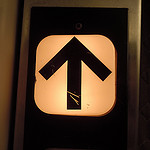We do affirmations wrong.
First, many of us react negatively to them. They sound so new-age-self-helpy that we avoid considering them. Second, affirmations can backfire. When they do, we get more of what we don’t want instead of what we affirmed.
Affirmations, done well, are very effective tools for work and life. If we can fix the backfiring issue, then we should be willing to ignore the new-agey aspect and reap the benefits.
Affirmations backfire when we use then to convince ourselves of something we don’t believe. Say, for example, we are terrified of giving an important, upcoming speech. We want to be calm and confident so we repeat to ourselves several times per day for days and days, “I am a calm and confident speaker.” If, deep down, we don’t believe we are calm and confident speakers, we will quietly and surely countermand every affirmation with what we really believe: “I will fall apart on stage, embarrass myself, and disappoint my audience.” Guess how the speech will go?
Boom. Backfire.
To prevent a backfire, we pay attention to how we feel. We may not catch the thoughts that describe what we really believe (“I will fall apart.”) but we will feel them. That often subtle tension or weight in our gut, chest, head, shoulders, back, arms, or legs is the unmistakeable sign that we believe different than we want.
As soon as we catch that bad feeling, we can do a flip or a ladder to replace the old, no-longer-useful, bad-feeling belief then try the affirmation again. When saying or thinking the affirmation feels good (e.g. a sense of relief or lightness), good stuff tends to happen.
In your corner,
Mike
Today’s photo credit: SoulRider.222 via photopin cc


